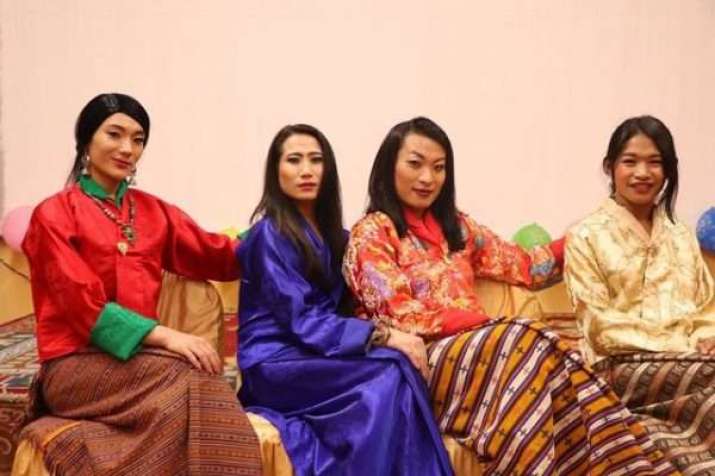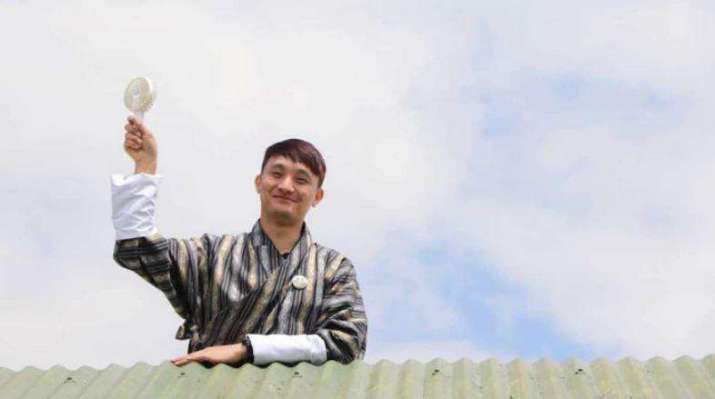
The National Council, the upper house of Bhutan’s parliamentary national assembly, is poised to pass a bill to officially decriminalize homosexuality this month. The bill was approved in June 2019 by the Legislative Committee,* or lower house, and if passed will next go before the king for final approval.
Ahead of the vote, the UK-based human rights organization Amnesty International called for Bhutan’s legislators to “seize an historic opportunity to secure equal rights for LGBTI people in the country” by passing the bill. (Amnesty International) The legislation, which would repeal sections 213 and 214 of the Penal Code of Bhutan, was first proposed by Finance Minister Namgay Tshering and passed the lower house with near-unanimous support. Section 213 declares that a person is guilty of the criminal offence of unnatural sex if an individual engages in sodomy or any other sexual conduct that is against the order of nature. Section 214 details that the offence as a petty misdemeanor.
“Bhutanese are generally quite tolerant about anyone being LGBTIQ. But we need to go beyond just tolerating,” said Namgay Zam, an independent journalist who has been working to get the bill passed. “We need to accept that humans not only come in all shapes, sizes, and colors, but also with all kinds of sexuality. It’s about social inclusion after all.” (The Diplomat)
In May last year, Taiwan became the first Asian nation to legalize same-sex marriage. India’s government struck down colonial-era legislation prohibiting gay sex in September 2018. Meanwhile, Hong Kong, where Buddhistdoor Global is based, abolished or revised several offenses that criminalized sex between men in 2019, but does not provide equal rights for same-sex unions, which campaigners continue to fight for in the courts system.
Tashi Tsheten, director of Rainbow Bhutan, which represents the country’s LGBTI community, said: “Our religion [Buddhism] has so far never objected to the way we live our lives. Our gender identity and sexuality are linked to our past deeds or ‘karma’ of our previous lives. We take that as an opportunity for acceptance as we believe we do not decide our fate and our lives are often determined by our deeds. This is why our religion teaches us to accept the way we are and not judge others for who they are.” (The Diplomat)

Looking ahead, Tsheten says that this is not the final step for Bhutan’s LGBTI community: “We will keep on moving forward regardless of the decision but if decriminalization happens, it will act as a catalyst for us. It will surely open up spaces in the government and other sectors to lobby for change and acceptance in the country. Few of the opportunities that we look forward to is inclusion of SOGIESC (sexual orientation, gender identity and expression, and sex characteristics) in all the major policies that the government drafts and in the current national policies of the government. Policies protecting the community against discrimination [and] access to change of gender in legal documents are some of the immediate plans for us.” (The Diplomat)
Bhutan, a kingdom of some 750,000 people, is predominantly Buddhist, with 75 per cent of its population following Vajrayana Buddhism, according to data for 2010 from the Washington, DC-based Pew Research Center. Hinduism is the second-largest religion in the country. The country is renowned for its policy of GNH or “Gross National Happiness,” which seeks to actively promote the holistic well-being of its citizens as national policy.
* Buddhist Kingdom of Bhutan Moves to Decriminalize Homosexuality (Buddhistdoor Global)
See more
Bhutan: Historic opportunity to decriminalize same-sex relationships (Amnesty International)
Bhutan’s Lawmakers Urged to Decriminalize Homosexuality (The Diplomat)
Bhutan on Brink of Overturning Same-Sex Conduct Ban (Human Rights Watch)
Hong Kong court turns down first judicial challenge for same-sex marriage but urges government to review policies to avoid legal action arising from discrimination against LGBT people (South China Morning Post)














